Spanish 103 - Learn Spanish Present Subjunctive with Doubt, Denial and Disbelief Spanish With Profe
In this video you will learn the present subjunctive with doubt, denial and disbelief in Spanish.
The present subjunctive is a mood. The subjunctive cannot stand by itself. It depends on verbs of will/want, emotions, denial, doubt, desire, impersonal expressions, negation, general expressions, God, ojalá. It happens on the subordinate clause.
There are regular verbs, irregular verbs, stem-changing verbs. There are also spelling changes.
To remember the subjunctive you can make use of the following acronyms: WEDDING or WEIRDO.
WEDDING=W-stands for Wish/Want/Will, E for emotion, D for desire, doubt, denial, I for impersonal expressions, and G for God; and WEIRDO=W for Wish/Want/Will; E for emotions, I for impersonal expressions, D for denial/desire/doubt, and O for ojalá.
Any time you see Ojalá you will use the subjunctive. An expression now meaning hopefully in Spanish comes from the Arabic "إن شاء الله - 'in sha' allh" meaning God Willing; a prayer to God/Allah. Large parts of Spain were conquer by Muslims invaders from North Africa from 711-1492AD. Only the very far northern Christian Kingdoms of the Iberian Peninsula remained independent. As a result of this 800 year occupation we have many words in Spanish that have their origin in Arabic
The subjunctive will apply provided that it follows the subjunctive rule
A+ verb (denial, doubt) + que + B + verb (subjunctive)
Remember the subjunctive is hypothetical, it might happen, it is uncertainty.
Dudo que ellos ____(venir) a la fiesta.
A=YO (implied by dudo)
this verb implies doubt
B= ellos
So this sentence check off parts required for the subjunctive
Dudo que ellos vengan (venir) a la fiesta.
(I doubt that they will come to the party.)
The verbs: creer (to believe); pensar (to think) and estar seguro/a (to be sure)
will require the indicative as they are 100% certain in Spanish.
However if you make them negative then, they will require the subjunctive form.
Mi novio piensa que su mamá es (ser) amable.
A=novio
verb=piensa (thinks) =certainty
B= Mamá
this is sentence is 100% certain so we use the indicative.
vs.
Su mamá no cree que ellos sean amables.
A=su mamá
verb= no cree (negation/uncertainty/denial)
B= ellos
Since this sentence is now uncertain/denying/negating
then it will now need the use of the subjunctive.
Some Ways Below To Help Out The Channel Listed Below
► DONATIONS via PayPal (To help support the channel you can donate via PayPal): https://paypal.me/SpanishWithProfe?locale.x=en_US
► ROBINHOOD (Get 1 Stock When You Sign Up. Easy to use app for investing and you get a free stock.): https://join.robinhood.com/grants1730
► WEBULL (Get 2 Stock When You Sign Up):https://www.webull.com/activity/get-free-stocks?inviteCode=uYiu2aNdG46N&source=invite_gw&inviteSource=wb_oversea
► CRYPTO.COM Use my referral link https://crypto.com/app/e3p3g4rc9m to sign up for Crypto.com and we both get $25 USD :)
-
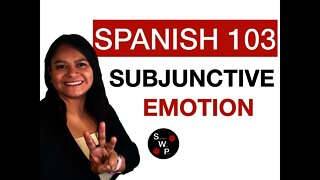 13:24
13:24
Spanish With Profe
2 years agoSpanish 103 - Learn the Spanish Present Subjunctive with Emotions and Feelings Spanish With Profe
1038 -
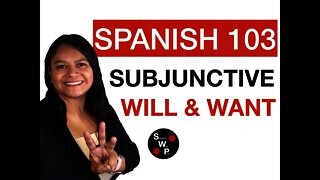 12:54
12:54
Spanish With Profe
2 years agoSpanish 103 - Spanish Present Subjunctive with Verbs of Will, Want WEIRDO Part 1 Spanish With Profe
988 -
 4:02
4:02
Proctor Gallagher Institute
6 years agoOvercoming Self-Doubt | Develop Confidence - Bob Proctor
9 -
 14:07
14:07
Speak English podcast with teacher Georgiana
3 years ago#173 English Phrasal Verbs with GIVE
18 -
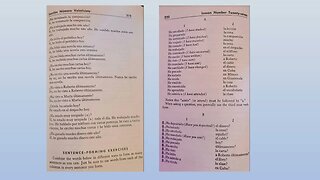 20:59
20:59
Lucasley
1 year ago $0.03 earnedHOW to Spanish in 15 minutes - Speak Spanish with Confidence - Lesson 34
1741 -
 6:15
6:15
italianoperstranieri
1 year agoThe verb ESSERCI (c'è - ci sono). Theory, practical examples, exercises with solutions.
12 -
 10:11
10:11
italianoperstranieri
1 year agoStare per + infinito e stare + gerundio. Theory, practical examples and exercises with solutions.
7 -
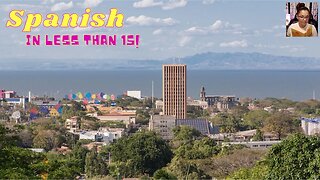 26:13
26:13
Lucasley
1 year ago $0.01 earnedHOW to Spanish in 15 minutes - Speak Spanish with Confidence - Lesson 37
43 -
 25:32
25:32
Be Inspired Now
1 year agoBELIZE | Proverbs and Quotes #belize #belizeproverbs
42 -
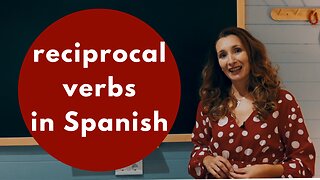 11:55
11:55
Free Spanish Lessons
1 year agoWhat are RECIPROCAL verbs and how to use them in Spanish + CONJUGATION!
220